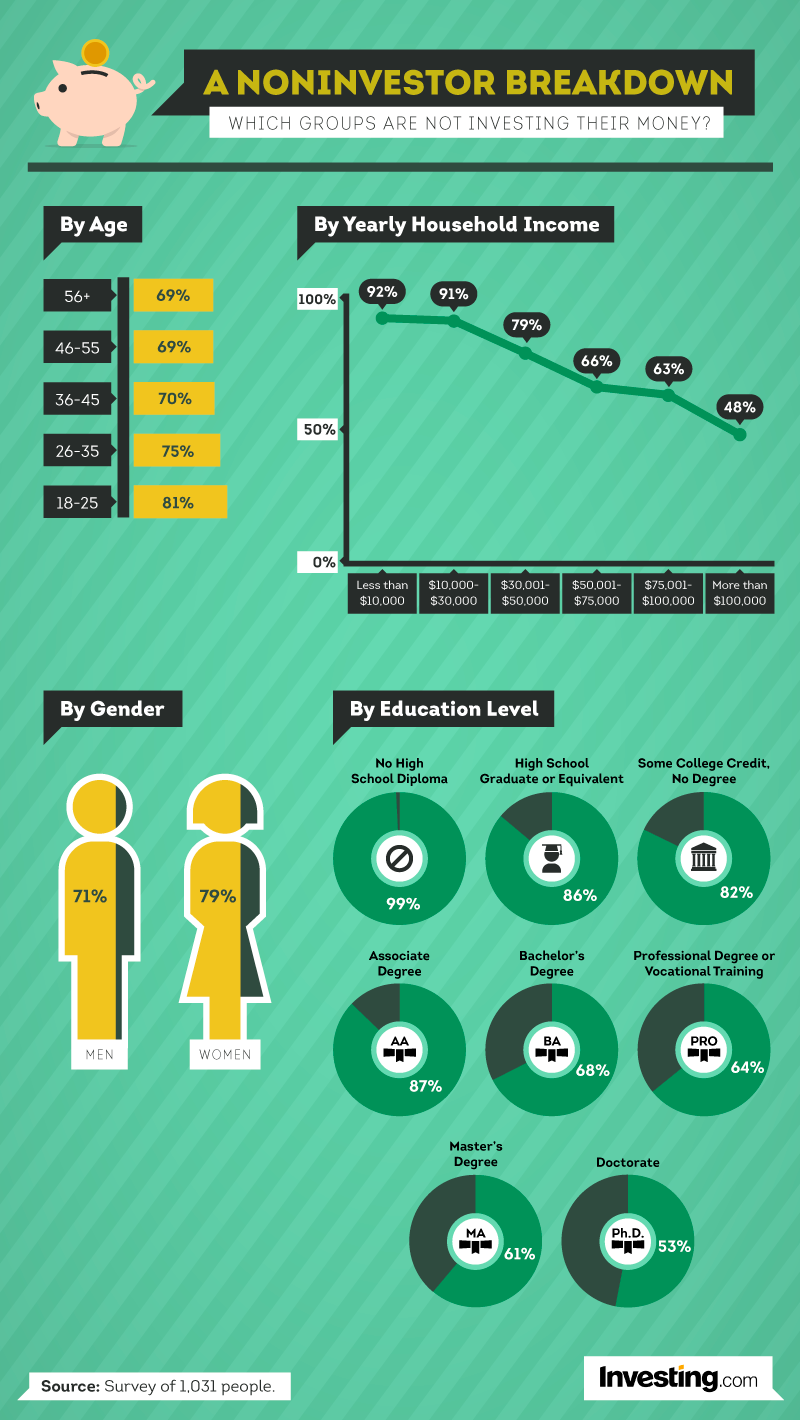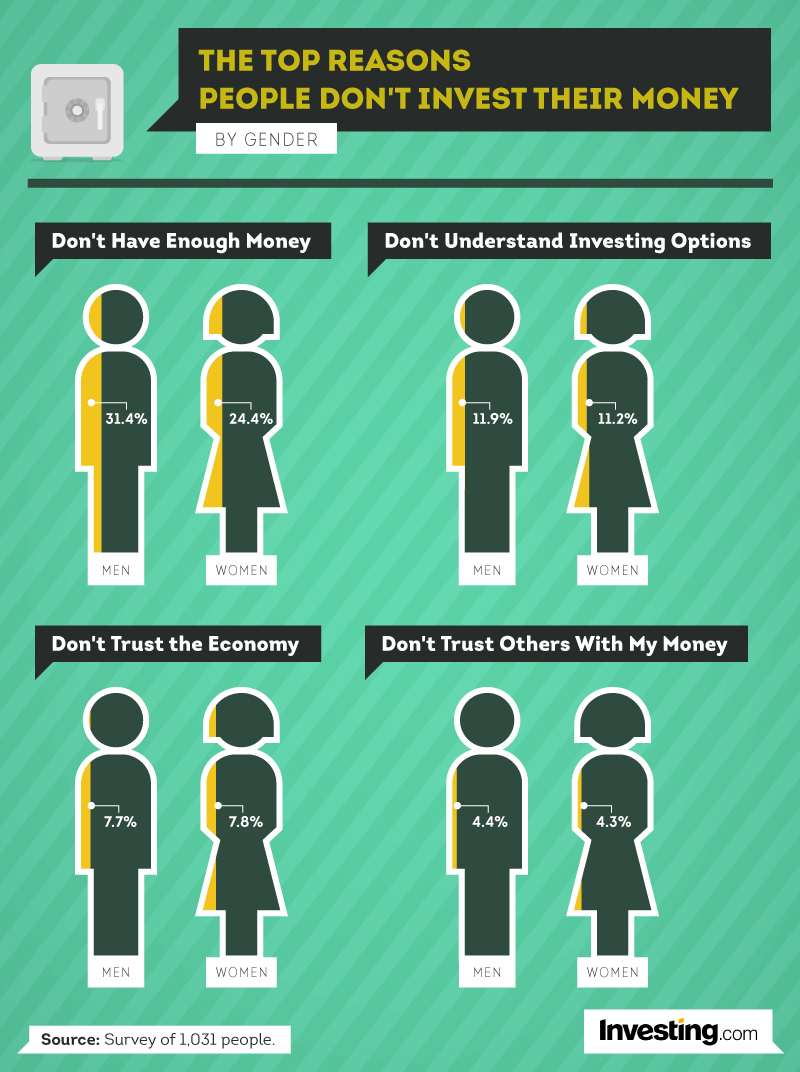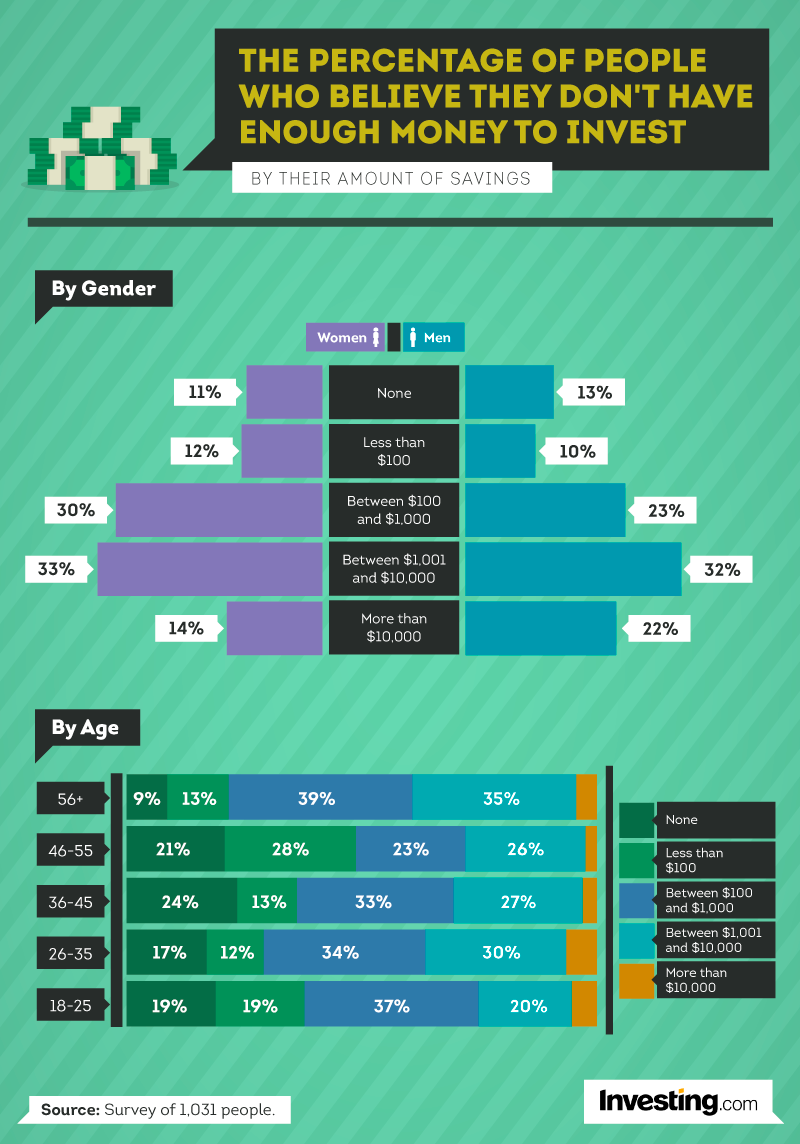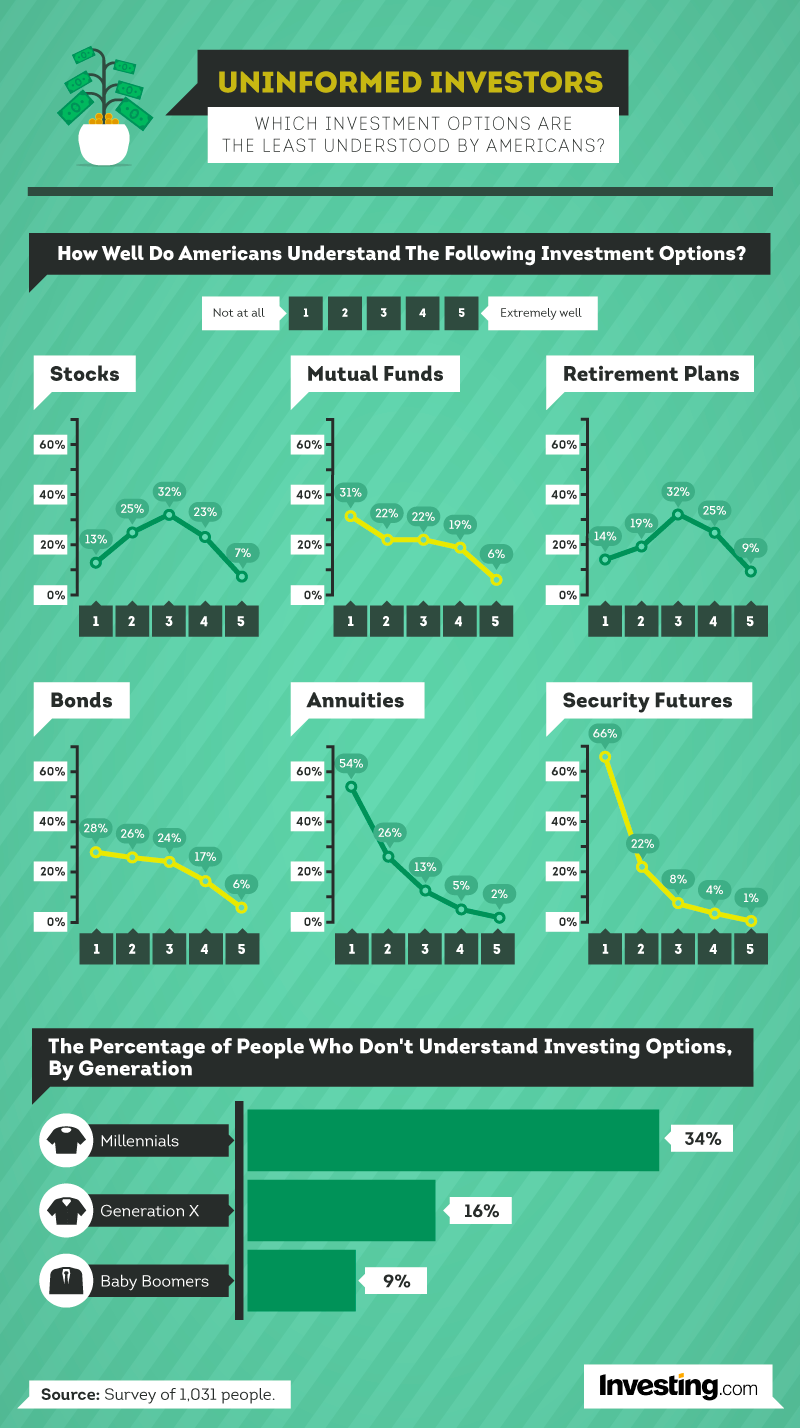A recent survey found that only 9% of Millenials and Gen-Xers consider themselves investors, with the majority of people more accurately self-identifying as savers and spenders. Despite the fact that investments are meant to yield financial growth down the road, many people simply aren’t comfortable putting their money into someone else’s hands.
We surveyed 1,000 Americans to learn more about why so many people are reluctant to invest their money. How well do people understand investment options, and which demographics are least likely to invest? Continue reading to learn more.
Who Is Not Investing?
Our survey revealed most people, regardless of age or income, did not invest in any capacity. While those aged 46 or older were the most likely to invest their money in comparison to other age groups, less than a third of people of this age were currently engaged in investment opportunities.
Younger demographics were even worse. Americans between the ages of 18 and 25 were the least likely to invest, with less than 1 in 5 responding positively about their money-saving habits. That may be due in part to the fact that a large percentage of people in this age range are college students. Research has shown millennials are turned off by the idea of investing and are confused by the subject.
Roughly 20 percent of Americans earning $50,000 or less a year were currently enrolled in some form of investment opportunity, and less than 1 in 10 people earning $30,000 or less said the same. Despite the potential for positive returns in investments like stocks, only respondents making more than $100,000 a year were likely to be investing.
Why Americans Aren’t Investing
Why are Americans not investing? While more than 1 in 10 men and women didn’t understand their investment options, over 30 percent of men and nearly 25 percent of women didn’t believe they had enough money to do so.
Popular opinion may hold that you need a lot of money to start investing in the stock market, but prominent investors say otherwise. As little as $500 may be enough to get you going if you’ve done enough research to know where to put it.
Trust wasn’t a big concern for most of the people surveyed. Under 10 percent of men and women didn’t trust the economy, and less than 5 percent didn’t trust other people with their money.
Too Little to Invest
Of those who believed they didn’t have enough money to invest, around a third of women and 23 percent of men had between $100 and $1,000 in savings.
While 35 percent of participants aged 56 or older had between $1,001 and $10,000 in savings, and 4 percent had over $10,000, Americans’ average amount of savings has been in decline since 2007, particularly among those aged 56 to 61.
While millennials may not be saving or investing as much, the generation most likely to have no savings were Gen Xers and some baby boomers. More than 1 in 5 people aged 36 to 55 had no money in savings to date.
People aged 56 or older had the strongest savings portfolios, with more than a third reporting between $1,001 and $10,000 set aside. However, those between the ages of 26 and 35 were the most likely to have $10,000 or more in their savings account.
Diversifying Your Investment Portfolio
Opportunities for investing can extend beyond the stock market. We asked respondents to rank how well they understood the variety of investment opportunities available, and many admitted not understanding most of them at all.
Only stocks and retirement plans were ranked by most as a three out of five regarding how well they were understood. While stocks were ranked as one of the more widely understood investment opportunities, mutual funds – which are variations of stocks, bonds, and other holdings where companies help investors pool their money to expand their portfolios – were rated by nearly a third as having no knowledge of it at all.
Other forms of investments like annuities and security futures were rated by more than half of those surveyed as a one out of five in their level of understanding. While baby boomers were the least likely to say they didn’t invest because they didn’t know how, studies have shown few have invested in annuities.
Overwhelmingly, the generation most likely not to understand investing options was millennials.
Your Investments, Your Future
The reality is, most people don’t invest their money because they believe they don’t have enough or don’t understand their options. Our survey revealed most Americans – regardless of age, education, or income – had no form of savings or investments, including those close to retirement age.
Methodology: For this campaign, we surveyed 1,031 Americans ages 18 and older, asking them about their savings and investing habits. By analyzing the results, we were able to visualize the data to uncover information about which demographics were not investing their money and why.
Editor's Note
Investing.com is a leading financial platform covering global financial markets with real-time data, quotes, charts, financial tools, breaking news and analysis.
With over 75,000 financial instruments, traded on over 100 global exchanges, Investing.com offers a free yet complete solution for global traders, seasoned and first time investors. The website and its apps are available in 30 languages. Investing.com can help you do due diligence on global and local financial markets assets no matter what your level of financial expertise.
Fair Use Statement: If you found this content was a good investment of your time, feel free to share for noncommercial use. Please be sure to link back to this page to give the original authors credit for their work.




